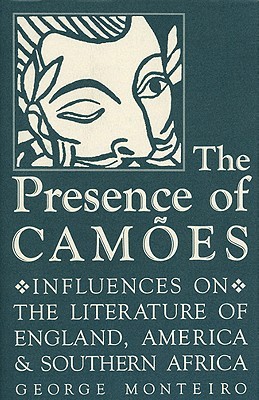
- We will send in 10–14 business days.
- Author: George Monteiro
- Publisher: University Press of Kentucky
- ISBN-10: 0813119529
- ISBN-13: 9780813119526
- Format: 14.5 x 22.3 x 2 cm, kieti viršeliai
- Language: English
- SAVE -10% with code: EXTRA
Reviews
Description
Of the great epic poets in the Western tradition, Luis Vaz de Camões (c. 1524- 1580) remains perhaps the least known outside his native Portugal, and his influence on literature in English has not been fully recognized. In this major work of comparative scholarship, George Monteiro thus breaks new ground, focusing on English-language writers whose vision and expression have been sharpened by their varied responses to Camões.
Introduced to English readers in 1655, Camões's work from the beginning appealed strongly to writers. The young Elizabeth Barrett's Camonean poems, for example, inspired Edgar Allan Poe to appropriate elements from Camões. Herman Melville's reading of Camões bore fruit in his career-long borrowings from the Portuguese poet. Longfellow, T.W. Higginson, and Emily Dickinson read and championed Camões. AndCamões as epicist and love poet is an éminence grise in several of Elizabeth Bishop's strongest Brazilian poems. Southern African writers have interpreted and reinterpreted Adamastor, Camões's Spirit of the Cape, as both a symbol of a dangerous and mysterious Africa and an emblem of European imperialism.
Recognizing the presence of Camões leads Monteiro to provocative rereadings of such texts as Dickinson's "Master" letters, Poe's "Raven," Melville's late poetry, and Bishop's Questions of Travel.
EXTRA 10 % discount with code: EXTRA
The promotion ends in 23d.00:45:29
The discount code is valid when purchasing from 10 €. Discounts do not stack.
- Author: George Monteiro
- Publisher: University Press of Kentucky
- ISBN-10: 0813119529
- ISBN-13: 9780813119526
- Format: 14.5 x 22.3 x 2 cm, kieti viršeliai
- Language: English English
Of the great epic poets in the Western tradition, Luis Vaz de Camões (c. 1524- 1580) remains perhaps the least known outside his native Portugal, and his influence on literature in English has not been fully recognized. In this major work of comparative scholarship, George Monteiro thus breaks new ground, focusing on English-language writers whose vision and expression have been sharpened by their varied responses to Camões.
Introduced to English readers in 1655, Camões's work from the beginning appealed strongly to writers. The young Elizabeth Barrett's Camonean poems, for example, inspired Edgar Allan Poe to appropriate elements from Camões. Herman Melville's reading of Camões bore fruit in his career-long borrowings from the Portuguese poet. Longfellow, T.W. Higginson, and Emily Dickinson read and championed Camões. AndCamões as epicist and love poet is an éminence grise in several of Elizabeth Bishop's strongest Brazilian poems. Southern African writers have interpreted and reinterpreted Adamastor, Camões's Spirit of the Cape, as both a symbol of a dangerous and mysterious Africa and an emblem of European imperialism.
Recognizing the presence of Camões leads Monteiro to provocative rereadings of such texts as Dickinson's "Master" letters, Poe's "Raven," Melville's late poetry, and Bishop's Questions of Travel.


Reviews